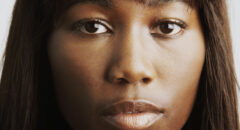 With the the possibility of politics dictating the future of free clinics like Planned Parenthood, R. Kelly's sex crime allegations recently resurfacing and a spike in STDs among youth, sex education in schools is a hot topic. Just like other topics taught in school, sex education should be developmentally appropriate, sequential and complete, but the debatable question is what does this look like. There are some school districts that are starting sex education as early as elementary school. And with all that children are exposed to at such an early age through the Internet, TV, music and social media, do you blame them?
With the the possibility of politics dictating the future of free clinics like Planned Parenthood, R. Kelly's sex crime allegations recently resurfacing and a spike in STDs among youth, sex education in schools is a hot topic. Just like other topics taught in school, sex education should be developmentally appropriate, sequential and complete, but the debatable question is what does this look like. There are some school districts that are starting sex education as early as elementary school. And with all that children are exposed to at such an early age through the Internet, TV, music and social media, do you blame them?
A 2014 article in The Atlantic referenced a study published by the American Journal of Public Health that found, "On average, black and Hispanic adolescents receive less thorough educations on reproductive health and birth control than their white counterparts within the same income bracket."
MUST READ: Recognizing The Signs Of Sexual Abuse In Children & What To Do
On one side of the argument you have those who believe if you teach children about sex too young it will encourage them to want to have it. The other side feels the exact opposite. In fact, a study done by the Obama Administration in order to support the President's push for comprehensive sex education in schools suggests that in comparison to those who received abstinence-only education, "teens who received comprehensive sex education were 50% less likely to experience pregnancy, 40% likely to delay sexual initiation, 30% more likely to reduce the frequency of having sex, and 60% likely to reduce the amount of unprotected sex."
WATCH: Dating: The NEW Rules
Perhaps when we raise the bar for our youth, they're inspired to meet or even exceed it.
According to the National Campaign to End Teen and Unplanned Pregnancy, 95% of all Americans have sex before marriage, and 2 of every 4 kids under the age of 17 are sexually active. There's no way around the fact that young people are having sex. But, lack of education and shame around seeking resources may be setting them up to engage in risky behavior.
The Department of Health states that 1 in 4 teens contract a sexually transmitted disease each year, and less than 50% of them have ever been tested. Although the rate of abortion among U.S. women is currently at its lowest since Roe v. Wade, The Atlantic reports, Black women are almost five times more likely to have an abortion than white women according to the Centers for Disease Control and Prevention.
MUST READ: Mothers & Daughters: Why Age 6 Is So Important For Both Of You
It appears that there needs to be some better education on prevention, protection and of options after conception. Many school districts are starting to teach sex education as early as kindergarten. "This school level may appear to be too early for such a sensitive topic. However, with a slightly different focus, this type of early intervention potentially can reduce risky sexual behavior in later childhood and adolescence," says LaKisha Mixon, M.S., M.A. of the Joseph J. Peters Institute. Mixon explains, "Developmentally, at the ages of 5 or 6, a child is unable to comprehend concepts such as cause and effect, time or comparison. Therefore, some aspects of sexual education in kindergarten such as contraceptive use to prevent pregnancy or contracting a sexually transmitted disease would be misunderstood by a child of this age. A child in kindergarten may not developmentally be able to comprehend the differences between gender, sexual attraction, or risky versus unrisky sexual behavior."
Appropriate topics at such an early age, instead, could address inappropriate touching (e.g., good touch vs. bad touch), what a child can do or say if touched inappropriately, the need for consent to be touched, the ability to say someone is too close, or bathroom behavior such as peeping under stalls while another child is using the bathroom.
"As clinicians and parents, we want to maintain the curiosity of our children, and at the same time shape our children's curiosities in positive and developmentally appropriate ways," says Mixon.
What are your thoughts? Do you think children should be taught about sex ed at an earlier age?
Visit KissTheChaos.com and follow me on Instagram: @Ooolala_laa









